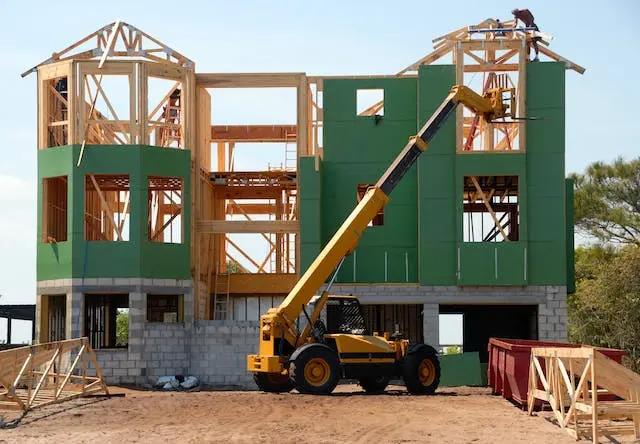Understanding the Risks and Benefits of Investing in Overseas Properties
Investing in overseas properties has become increasingly popular among investors looking to diversify their portfolios and explore new opportunities beyond domestic markets. This trend is driven by various factors, including globalization, economic growth in emerging markets, and advancements in technology facilitating cross-border transactions.
Definition and Importance
Investing in overseas properties refers to purchasing real estate assets located in foreign countries. It offers investors the opportunity to spread their investments across different geographical regions, currencies, and property types, reducing the overall risk exposure of their portfolios. Diversification is essential for mitigating risks and enhancing long-term investment returns.
Growing Trend
The trend of international property investment has witnessed significant growth. Investors are increasingly seeking opportunities beyond their home countries. This trend is driven by the desire for higher returns, portfolio diversification, access to emerging markets with strong growth potential, and lifestyle preferences such as owning vacation homes or retirement properties abroad.
Investing in Overseas Properties: Purpose
The purpose of this article is to explore the potential risks and benefits associated with investing in overseas properties. By understanding these factors, investors can make informed decisions and effectively manage their international property investments. Whether you’re a seasoned investor or considering your first venture into overseas property markets, gaining insights into the risks and benefits is crucial for success.
Factors Influencing Overseas Property Investment
Investing in overseas properties is influenced by various factors, including economic considerations, legal and regulatory frameworks, as well as cultural and social factors. Understanding these influences is crucial for making informed investment decisions.
Economic Considerations
Economic factors play a significant role in overseas property investment decisions. Furthermore, exchange rates can impact the cost of purchasing property and the returns gained from rental income or property sales. Economic stability in the target country is essential for long-term investment viability, as instability can lead to fluctuations in property values and rental yields. Additionally, assessing the growth potential of the local economy can provide insights into future property market performance, guiding investment strategies.
Legal and Regulatory Framework
Navigating the legal and regulatory frameworks of different countries is vital to mitigate legal risks associated with overseas property investment. Investors must understand property ownership laws, taxation policies, and regulations governing foreign investment. This includes considerations such as property rights, land tenure systems, and restrictions on foreign ownership. Conducting thorough due diligence and seeking legal advice can help investors navigate complex legal landscapes and ensure compliance with local regulations.
Investing in Overseas Properties: Cultural and Social Factors
Cultural differences, social dynamics, and lifestyle preferences also influence property investment choices abroad. Cultural factors such as language barriers, cultural norms, and business practices can impact communication and negotiations with local stakeholders. Social dynamics, including demographics, urbanization trends, and lifestyle preferences, shape property demand and rental markets. Understanding the cultural and social context of the target market enables investors to tailor their investment strategies to meet local preferences and market dynamics.
Investors can assess the suitability of overseas property investments. They do this by considering economic, legal, and cultural factors. This helps them mitigate associated risks. Ultimately, it enhances the prospects of success in international real estate markets.
Risks Associated with Overseas Property Investment
Investing in overseas properties presents various risks that investors must carefully consider to safeguard their investments and maximize returns.
Currency Fluctuations
Currency fluctuations can significantly impact the value of investments in overseas properties. Changes in exchange rates can affect the cost of property acquisitions, rental income, and the proceeds from property sales when converted back to the investor’s home currency. To mitigate currency risks, investors may employ hedging strategies such as forward contracts, currency options, or diversifying currency exposure through investment in assets denominated in different currencies.
Political Instability
Political instability in foreign countries poses significant risks to overseas property investments. Changes in government policies, regulations, and geopolitical tensions can disrupt property markets, leading to fluctuations in property values and rental incomes. Investors must closely monitor political developments in target markets and assess the stability of governments to gauge the risk exposure of their investments. Diversifying investments across politically stable regions can help mitigate the impact of political instability on investment portfolios.
Legal and Tax Risks
Navigating the complexities of legal systems and tax regulations in different countries presents challenges and risks for property investors. Differences in property laws, ownership rights, and taxation policies can affect investment returns and expose investors to legal and tax liabilities. It is essential for investors to conduct thorough due diligence, seek expert legal and tax advice, and ensure compliance with local regulations to mitigate legal and tax risks associated with overseas property investments.
Benefits of Investing in Overseas Properties
Investing in overseas properties offers benefits. Investors seek to diversify portfolios, achieve higher returns, and enjoy lifestyle opportunities abroad.
Diversification
Diversification is key to reducing overall risk exposure in investment portfolios. By investing in overseas properties, investors can spread their investments across different geographical regions, property types, and currencies. Diversifying into international real estate markets helps mitigate risks associated with domestic market fluctuations, economic downturns, and geopolitical uncertainties. It provides a hedge against regional-specific risks and enhances portfolio resilience in the face of market volatility.
Potential for Higher Returns
Overseas property markets often offer the potential for higher returns compared to domestic markets, particularly in emerging economies experiencing rapid economic growth and urban development. Emerging markets may present opportunities for capital appreciation, rental yield growth, and favourable investment climates with less competition. Additionally, investing in overseas properties allows investors to capitalize on currency advantages and leverage exchange rate fluctuations to enhance investment returns. However, it is essential for investors to conduct thorough market research and due diligence to identify promising investment opportunities and mitigate associated risks.
Lifestyle Benefits
Investing in overseas properties offers lifestyle benefits beyond financial gains. Investors can own vacation homes, retirement properties, or second residences in desirable locations. Specifically, they can enjoy personal use of the property for holidays or leisure purposes. Additionally, they can potentially generate rental income when not in use. Some countries offer residency or citizenship through investment programs. This provides investors with the opportunity to obtain legal residency or citizenship rights. It also helps diversify their investment portfolios.
Investing in Overseas Properties: Conclusion
As investors consider venturing into overseas property investment, it’s crucial to weigh the risks and benefits carefully to make informed decisions that align with their financial goals and risk tolerance.
Summary
In this article, we explored the multifaceted landscape of investing in overseas properties. We discussed the economic, legal, political, and cultural factors that influence investment decisions, as well as the potential risks and benefits associated with international real estate markets. From currency fluctuations and political instability to diversification opportunities and lifestyle benefits, investing in overseas properties offers a range of considerations for investors to navigate.
Considerations for Investors
Before diving into overseas property investment, investors should conduct thorough research. They need to assess their risk appetite and seek expert advice to mitigate potential risks. In fact, understanding the legal and regulatory frameworks of target markets is crucial. Monitoring economic indicators and staying informed about geopolitical developments are also essential. Additionally, investors should carefully evaluate potential returns and consider diversification strategies. They should also factor in lifestyle preferences when selecting investment opportunities abroad.
Investing in Overseas Properties: Future Outlook
The future outlook of international property markets remains dynamic. It is influenced by global economic trends, geopolitical shifts, and evolving consumer preferences. Challenges such as currency volatility and political instability may persist. However, opportunities for diversification and higher returns in emerging markets continue to attract investors. Technological advancements, changing demographics, and sustainable development initiatives are also shaping the future landscape of overseas property investment. By staying proactive, adaptable, and informed, investors can navigate the evolving terrain of international real estate markets and position themselves for long-term success.
In conclusion, investing in overseas properties presents both risks and rewards. By carefully weighing the considerations discussed in this article and staying attuned to market dynamics, investors can harness the potential of international real estate to diversify their portfolios and achieve their investment objectives.
Find out more about what’s happening in the property market in our News column.








